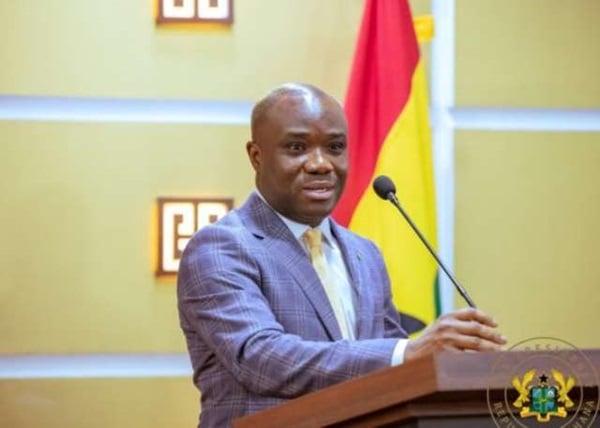The Ghanaian government, under the leadership of the Minister in charge of Government Communications, Felix Kwakye Ofosu, has announced its intention to repeal Legislative Instrument (L.I.) 2462. This legislative instrument currently permits mining activities within designated forest reserves in Ghana. This decision represents a significant shift from the government’s initial plan to simply amend the L.I., which would have removed the presidential power to grant mining licenses in these protected areas. The move comes after considerable pressure and criticism from environmental advocacy organizations, notably A Rocha Ghana and the Media Coalition Against Galamsey, who have long campaigned against the detrimental effects of mining on Ghana’s fragile forest ecosystems. The government now aims for a complete revocation of the L.I., signifying a stronger commitment to environmental protection and a recognition of the serious threat posed by mining within forest reserves. The Attorney General is expected to spearhead this legal process once Parliament resumes its session.
The government’s decision to repeal L.I. 2462 underscores a broader strategy to combat the pervasive issue of illegal mining, commonly referred to as “galamsey,” in Ghana. Kwakye Ofosu emphasized the gravity of the situation, labeling galamsey a national crisis that demands immediate and decisive action. He drew a parallel between the destructive impact of illegal mining and the threat of terrorism, indicating the government’s unwavering resolve to address the problem with the same level of seriousness and urgency. This comparison highlights not only the environmental devastation caused by galamsey but also its potential to destabilize communities and undermine the rule of law. The government’s characterization of galamsey as a national security threat signals a significant escalation in its approach to combating the illegal activity.
The fight against galamsey has been a central focus of the government’s efforts since taking office. Kwakye Ofosu reiterated the government’s ongoing commitment to tackling this challenge, assuring the public that their determination should not be underestimated. He highlighted the continuous actions taken over the past months to address the issue, demonstrating a sustained effort rather than isolated interventions. This ongoing commitment suggests a recognition that combating galamsey is a long-term endeavor requiring sustained policy implementation, law enforcement, and community engagement. The statement underscores the government’s resolve to persevere in this fight and to hold those involved in illegal mining activities accountable under the law.
The initial proposal to amend L.I. 2462, rather than repeal it entirely, was met with significant opposition from environmental groups. They argued that simply removing the presidential power to grant licenses was insufficient and that the very existence of the L.I. created a legal loophole that could be exploited. These groups advocated for a complete revocation of the L.I. to send a clear and unambiguous message that mining in forest reserves is unacceptable. The government’s decision to ultimately pursue a full repeal demonstrates a responsiveness to these concerns and a willingness to engage with civil society organizations in the policy-making process. This shift signifies a victory for environmental advocacy and reinforces the importance of public pressure in holding the government accountable for its environmental policies.
The government’s commitment to repealing L.I. 2462 aligns with its broader objectives of protecting Ghana’s natural resources and promoting sustainable development. Forest reserves play a vital role in maintaining biodiversity, regulating water cycles, and mitigating the impacts of climate change. The uncontrolled mining activities within these protected areas pose a significant threat to these essential ecosystem services. By taking decisive action against galamsey and repealing the legislation that enables it, the government aims to safeguard these valuable natural resources for present and future generations. This commitment underscores the importance of balancing economic development with environmental protection and ensuring the sustainable use of Ghana’s natural heritage.
The repeal of L.I. 2462 represents a significant step forward in the fight against illegal mining in Ghana. It demonstrates the government’s responsiveness to public concerns and its willingness to strengthen environmental protection measures. However, the effectiveness of this decision will ultimately depend on the government’s ability to enforce the law and implement robust measures to combat galamsey on the ground. Continued vigilance and collaboration between government agencies, civil society organizations, and local communities will be crucial to achieving long-term success in this critical endeavor. The government’s commitment to treating galamsey with the same seriousness as terrorism sends a strong signal of its intent, but translating this intent into concrete action will be the true measure of its success.


